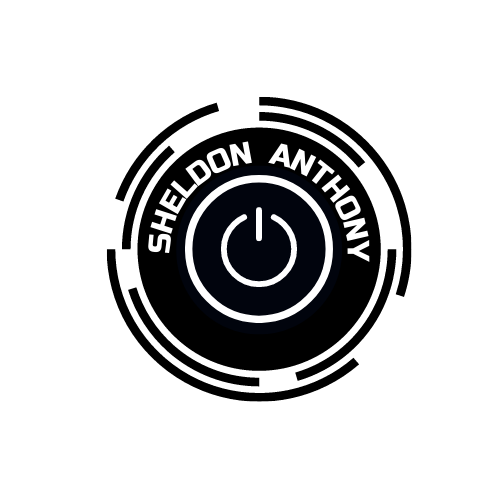
A hybrid blockchain model is a combination of a public and private blockchain. It combines the benefits of both models to create a more practical and efficient way of performing transactions. In a hybrid blockchain model, a public blockchain is used for public transactions while a private blockchain is used for private transactions. The traditional blockchain has certain limitations that hinder its practicality in some industries and market leaders are now turning to hybrid blockchain models to overcome these hurdles and realize the full potential of blockchain technology. This blog post will highlight how hybrid blockchain models are disrupting 4 key industries:
-
Supply Chain Management
Companies are using hybrid blockchain models to enhance transparency and efficiency in their supply chains. The private blockchain allows them to keep sensitive information private while the public blockchain enhances trust and transparency with its suppliers and consumers. Using hybrid blockchain technology, supply chains can be more trusted, efficient, and speedy by enabling faster and cheaper product distribution, increasing the traceability of products, and increasing collaboration among partners. One example of how the supply chain management industry is using hybrid blockchain technology is the project led by Provenance, a supply chain transparency start-up, to track the responsible sourcing of tuna in Indonesia. The project involves a consortium of stakeholders, including fishermen, processors, exporters, retailers, and NGOs, that use a hybrid blockchain platform developed by Provenance and ConsenSys. The hybrid blockchain allows the participants to share verified information about the origin, quality, and social and environmental impact of the tuna products while maintaining their privacy and control over their own data. The project aims to demonstrate the benefits of using blockchain for improving traceability, reducing fraud, and enhancing consumer trust.[1]
Banking
Hybrid blockchain technology is providing the banking industry with better control over what they want to achieve, rather than changing their plans based on the limitations of traditional blockchain technology. They are benefiting from this technology because of their responsibility to secure user data and privacy. Hybrid blockchain technology can be used in both financial and non-financial ways, and it can provide faster, cheaper, more secure, and more inclusive transactions for banks and customers. It is also helping to reduce the friction involved in creating, buying, and selling securities by providing a unique digital representation of a financial instrument. Overall, hybrid blockchain technology has the potential to disrupt the banking industry by providing new solutions that deliver tangible business outcomes. One example of how the banking industry is using hybrid blockchain technology is the project led by Banque de France, the central bank of France, to test central bank digital currency (CBDC) for the exchange and settlement of tokenized financial assets. The project involves a consortium of banks and financial institutions, including Euroclear, Société Générale, and HSBC, that use a hybrid blockchain platform developed by IBM and ConsenSys. The hybrid blockchain allows the participants to share a common ledger of transactions and balances while preserving their privacy and control over their own data. The project aims to demonstrate the feasibility and benefits of using CBDC for interbank settlements, such as reducing costs, risks, and delays.[2]
-
Healthcare
Hybrid blockchain models have the potential to revolutionize healthcare by providing better security, privacy, and accessibility for patients and healthcare providers. Healthcare organizations can improve performance, patient data transparency, tracking, and accountability, and healthcare costs can be reduced by facilitating the secure transfer of patient medical records, strengthening healthcare data defenses, managing the medicine supply chain, and helping researchers unlock genetic codes. One example of how the healthcare industry is using hybrid blockchain technology is the project led by AI Charlie Health, a healthcare data management company. They are using a hybrid blockchain model on their platform that aims to improve the interoperability and security of medical records by using metadata to link them across different systems and providers. The platform also provides real-time visibility for patients, their doctors, laboratories, consulting specialists, pharmacies, and payers, allowing them to access and share relevant information while preserving their privacy and control over their own data. The project leverages a hybrid blockchain model that combines the advantages of public and private blockchains, such as transparency, scalability, and performance.[3]
-
Governments
Hybrid blockchain technology has the potential to disrupt government industries by building and managing public identification databases, conducting electoral voting processes, delivering humanitarian and social aid to citizens, storing complex data like medical records, and automating acquisition processes. It is facilitating more extensive cooperation and helping economies grow. An example of how a government is using hybrid blockchain technology is the project led by the National Center for Health Statistics (NCHS) at the Centers for Disease Control and Prevention (CDC) to improve its data collection and access. The project involves a hybrid blockchain platform developed by IBM that allows NCHS to securely collect, store, and share health data from various sources, such as hospitals, laboratories, and pharmacies. The platform also enables NCHS to maintain strict data access policies and provide granular permissions to different users, such as researchers, policymakers, and public health officials. The project aims to demonstrate the benefits of using blockchain for enhancing data quality, timeliness, and usability. [4]
Hybrid blockchain models are disrupting industries by offering the best of both worlds: the security and transparency of public blockchains and the scalability and privacy of private blockchains. By combining these features, hybrid blockchains can enable innovative solutions for various sectors, such as finance, healthcare, supply chain, and more. As more and more businesses adopt hybrid blockchains, we can expect to see a new wave of transformation and innovation in the digital economy.





No comments:
Post a Comment